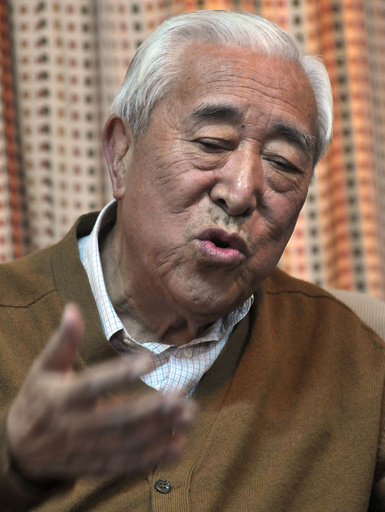NEW DELHI — Gyalo Thondup, the older brother of the Dalai Lama and former head of the Tibetan government-in-exile in India, has passed away at the age of 97. His death occurred on Saturday evening at his residence in Kalimpong, a picturesque town nestled in the Himalayan foothills of West Bengal. Specific details surrounding his passing have not been disclosed.
Thondup was widely recognized in Tibetan media for his initiatives in fostering relationships with foreign governments, notably aiding in the establishment of U.S. support for the Tibetan cause. His contributions to the Tibetan movement have been particularly praised following his death.
In response to the news, the Dalai Lama conducted a prayer session at a monastery in Bylakuppe, Karnataka, where he is spending the winter. During the session, he prayed for his brother’s “swift rebirth,” in line with Buddhist customs, and expressed gratitude for Thondup’s significant efforts in supporting the Tibetan struggle.
Thondup, distinct from his five siblings with respect to religious orientation, moved to India in 1952 and played a vital role in forging early connections with both the Indian and U.S. governments to garner support for Tibet. In 1957, he was instrumental in recruiting Tibetan soldiers who underwent training in the United States in the following years, as reported by U.S.-funded Radio Free Asia.
According to RFA, Thondup was a key figure in communicating with the Indian government, notably with Prime Minister Jawaharlal Nehru, during the Dalai Lama’s escape to India in 1959. His efforts also included strengthening relationships between Tibetan leaders and U.S. officials.
In 1979, Thondup shifted his strategy significantly by initiating dialogues between Tibetan representatives and Chinese leaders. This marked a departure from his earlier stances that favored military conflict against Chinese dominance in Tibet. Those discussions established a foundation for a series of official negotiations between the Dalai Lama’s envoys and Chinese authorities, which continued until they were suspended in 2010.
Reflecting on Tibet’s future in a 2003 interview with RFA, Thondup emphasized that neither India nor the United States could resolve the Tibetan situation, asserting that meaningful progress could only arise from direct negotiations with Beijing.
From 1991 to 1993, Thondup held the position of chairman for the Tibetan government-in-exile, based in Dharamshala, India, leaving a profound impact on the Tibetan community and its worldwide advocacy efforts.
